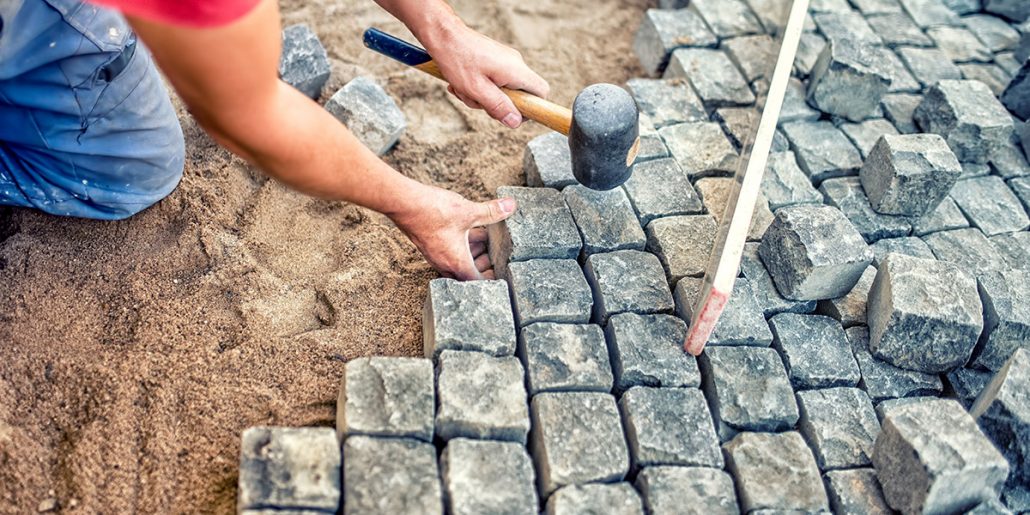Unlocking the Keys of Lasting Masonry Building And Construction Practices for Eco-Friendly Buildings
Amongst the myriad approaches to eco-friendly structure, lasting stonework construction stands out as a tried and true and sturdy method that holds a riches of untapped possibility. From the option of products to innovative construction methods, the tricks to attaining sustainability within masonry building are diverse and interesting.
Benefits of Sustainable Stonework Building
Embracing lasting stonework building and construction techniques not only reduces ecological effect but additionally uses long-term financial benefits to building contractors and communities. By using products like recycled blocks, blocks, and rocks, building contractors can dramatically reduce the carbon impact of their jobs while advertising resource efficiency. Furthermore, sustainable stonework construction strategies, such as proper insulation and thermal mass residential or commercial properties, can boost energy performance within buildings, bring about minimized functional expenses with time.
Furthermore, the resilience and strength of masonry frameworks add to long-lasting financial benefits. Structures created using lasting stonework practices commonly need less upkeep and fixing, equating to set you back financial savings for contractors and homeowner. The durability of stonework products also guarantees that frameworks continue to be stable and protected, lowering the need for frequent restorations or substitutes.
Eco-Friendly Stonework Products
Utilizing environment-friendly stonework materials is a critical step in the direction of boosting the sustainability of building and construction techniques and minimizing environmental impact while optimizing long-term financial advantages. Lasting stonework products are sourced, generated, and made use of in a fashion that reduces overall environmental impact. Materials such as recycled bricks, reclaimed stone, and sustainable concrete blocks are ending up being significantly preferred selections for eco-conscious building contractors. Recycled blocks, for instance, not just draw away waste from garbage dumps however additionally call for much less power to create compared to new bricks. Reclaimed rock supplies a distinct aesthetic appeal while reducing the need for brand-new quarrying. Lasting concrete blocks integrate recycled aggregates and may feature better insulation residential or commercial properties, adding to power performance in structures.
In addition, natural materials like adobe, rammed planet, and straw bales give exceptional thermal mass homes, lowering the requirement for home heating and cooling power. These materials are commonly locally offered, advertising regional economic situations and lowering transportation-related carbon exhausts. By selecting eco-friendly masonry products, building and construction projects can dramatically decrease their ecological impact and contribute to the development of much healthier, much more sustainable constructed environments.
Energy-Efficient Masonry Methods
Power efficiency plays a critical function in improving the sustainability of stonework building and construction methods. By carrying out energy-efficient stonework techniques, contractors can substantially reduce the overall energy intake of a structure, bring about lower operational expenses and a smaller ecological impact. One key energy-efficient masonry method is using thermal mass, which entails including thick products like concrete or block into the building's structure to take in and keep warm. This aids manage interior temperature levels, reducing the requirement for mechanical home heating and cooling systems.

Advancements in Lasting Stonework
Current advancements in lasting stonework methods have actually produced ingenious strategies that are reshaping the building and construction industry. One such advancement is the growth of self-healing concrete, which utilizes germs installed within the concrete to recover cracks autonomously. This innovation not only decreases upkeep prices but likewise boosts the sturdiness of stonework frameworks, adding to their sustainability.
Another notable development is the usage of recycled accumulations in stonework construction - masonry contractor. By incorporating materials such as crushed ceramic waste or recycled glass into concrete mixes, builders can reduce the environmental effect of building jobs while keeping architectural honesty. This technique not only draws away waste from garbage dumps but likewise conserves natural deposits, making it a key innovation in lasting stonework building and construction
Furthermore, the integration of digital style tools, such as Building Info Modeling (BIM), is transforming the method masonry structures are planned and created. BIM enables even more precise calculations, reduced product wastefulness, and enhanced energy efficiency, ultimately leading to even more lasting structure methods. These advancements collectively represent a promising future for sustainable stonework building and construction in the age of environment-friendly structures.
Future Trends in Masonry Sustainability
With the innovative strides made in sustainable stonework techniques, the future patterns in masonry sustainability are positioned to additional transform the construction sector. Among the essential trends forming the future of masonry sustainability is the raised combination of innovation. round concrete stepping stones Advancements such as Structure Information Modeling (BIM) and digital truth simulations are being utilized to find maximize masonry building and construction processes, leading to minimized material waste and improved power effectiveness in structures.
Additionally, the development of novel lasting materials is readied to play a considerable role in improving the eco-friendliness of stonework building. masonry contractor. Technologies like self-healing concrete, recycled aggregates, and bio-based binders are obtaining traction for their capacity to reduce ecological impact while maintaining architectural integrity

Conclusion
In final thought, lasting masonry building techniques use countless benefits for eco-friendly buildings. masonry contractor. Technologies in lasting masonry are continuously being created to even more enhance the ecological performance of buildings.